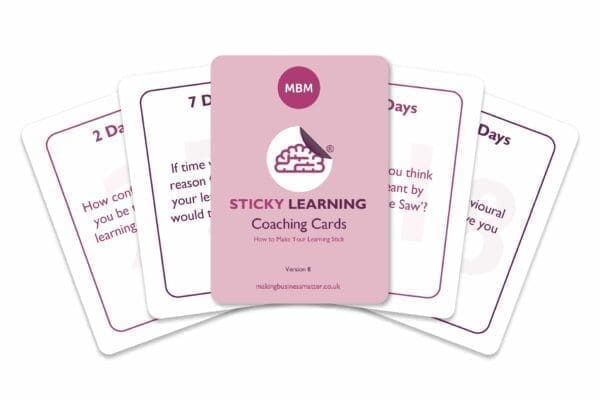Embracing Intellectual Growth
Knowledge workers hold key roles within all companies. In any organisation, there are different types of workers. All of them are important. We need to recognise and respect their contribution. Here, we will look at knowledge workers, their contribution, their importance and how we can support them more.
But, what is a knowledge worker? Also, how do they differ from other workers within the team? And, why are they so important to the success of a company? We will answer these questions and more throughout this article.
What is a Knowledge Worker?
As per the Cambridge dictionary definition, a knowledge worker is:
An employee whose job involves developing and knowing knowledge rather than producing goods and services”.
In any industry, we need a mix of different workers. These can be knowledge-based, information-based, and skilled-based. And getting the balance right is important. So, let’s look at a few aspects of knowledge workers. We will properly understand what knowledge workers mean, what they contribute to the organisation, and how their contribution adds value to other areas of the company.

A Brief History…
So, where did the term Knowledge Worker come from? “The Landmark of Tomorrow” by Peter Drucker, an Australian-American management consultant, first introduced us to the term. In this book, Drucker recognises the expanse of information technology. Also, he identified that mental skills would be essential moving into a more technological age. His identification of these ideals was instrumental in moving forward in the technological age.
As a result, many companies took the advice and recommendations of Drucker to further their white-collar workers. This has certainly helped many companies in terms of staying ahead of their competition. Also, it means that innovation and advancements had a better chance of happening. In fact, companies failing to recognise the need for knowledge workers has led to many companies losing their place in their industry. I am sure you can think of some yourself that have lost their marketplace.
Knowledge Workers Today

Knowledge workers hold many different roles within the organisation. They are commonly found in Information Technology, Financial, Design and Development roles throughout companies. Healthcare would also see a large number of knowledge workers throughout their ranks.
From my personal experience, many knowledge workers hold leadership roles. Think of your own organisation. Now, identify your key knowledge workers within the team. What skills do they possess? How important are their roles in your organisation? What more can you do, as a leader, to support these knowledge workers? We will be answering all those questions and more in this article.
In the 21st century, knowledge workers are seen as key roles in any organisation. They are considered one of the most important groups of contributors to the company’s success. Without them, many companies get left behind and stuck in old, dated ways. This can result in a company easily losing its market share. Also, they can see an overall drop in their competitive edge. I have seen this happening, where leaders fail to acknowledge the contribution knowledge workers provide. Make sure you don’t fall into that trap. Do not underestimate the importance creativity brings to a company’s success.
Sticky Learning ® is 7 times more effective than 1-day training courses. Plus, you will get a Chain of Evidence proving your Return on Investment. Discover soft skills training that changes behaviours long term.

Knowledge Workers Vs. Information Workers
Our knowledge workers have a very specific place in the company. They are the creative minds behind the forward movement of the company. They develop new concepts and ideas that allow the company to grow.
While information workers primarily use only data and information for their roles, knowledge workers go further. They take that data and information to formulate new processes and products for the company. They are creative and lead the development of new initiatives. No company can have longevity in their given industry without these key knowledge workers.


🧠>> Sticky Learning Coaching Cards <<🧠
Knowledge Workers Vs. Skill Workers
Once knowledge workers have their concepts and ideas in place, they need the support and technical skills of the skill workers to bring them to life. Knowledge workers may also have technical capabilities. However, their skill worker colleagues will generally be responsible for product development. Also, the skill workers are responsible for the daily rollout of new concepts or processes. Their collaboration is essential for the ideas to come to be.
A knowledge worker can, in fact, start as a skill worker. I did in the past. I was on the front line in front of guests and leading teams. Then, I moved to a knowledge worker role in learning and development. Also, in my role as quality assurance, I was very much a knowledge worker. That transition opened my eyes to the importance of all of these different roles. I used my experience and expertise from my days as a skill worker to improve my knowledge worker impact.
Imagine, you go for leadership training and the trainer has never led a team. Or, you attend a course for service delivery with a trainer who hasn’t provided that service. How do you feel about the trainer? Do you have confidence in them and their course? Probably not. Therefore, understanding that some knowledge workers started as skill workers can be reassuring. I know it makes me feel better about what we might achieve.
Skills of Knowledge Workers

So, what skills do knowledge workers have? There are a number of different skills that knowledge workers possess, here we are looking at 5 key attributes.
#1 – Innovation
Knowledge workers need to have the chance in their role to be creative. They are the key thinkers in the group. Allow them to brainstorm and create new concepts and ideas. Also, ensure they have the proper working environment where ideas can flow and develop. Commit as leaders to giving them the autonomy to think outside the box and develop something new. This will help set you apart from the competition.
The innovation stage may not always be something new. It can also be the enhancement of existing products and processes. These enhancements also help keep the company fresh and in line with market trends. Don’t expect something brand new every time. Sometimes, we don’t need to reinvent the wheel to make a difference. Allow these enhancements to be developed for future success as well.
#2 – Analysis
Once the knowledge workers have come up with their ideas, they will need to analyse what will work and how. Also, they will analyse what is happening out in the market within your given industry. Ensure competitor checks are available for your knowledge workers. Encourage site visits and product testing. Also, enable them to put their ideas to the test. Make resources and, where necessary, finances available for this.
Further analysis that our knowledge workers will do is post-launch. Here, they have a role to check the effectiveness of their idea against the goals and targets that were set. This is a great way for the knowledge workers to analyse what works well and where further development may be required. Give time for this to happen. Allow them the chance to do their checks and audits to identify the level of success. The process or product needs this analysis to properly understand the difference that has, in fact, been made with its introduction.
#3 – Communication
Once the ideas have been formulated and properly analysed, your knowledge workers then need a platform to communicate these ideas. This can be within the company as well as externally. Give them a voice as well as support in these key communication areas. Support their initiatives publicly as well as create buy-in internally in the organisation.
Bonus Material ⇒ Ultimate Guide on Communication Skills.
#4 – Decision-making
Due to the level of analysis and preparation they do, knowledge workers are effective decision-makers. They make decisions primarily based on data and facts. However, as they are creative, they will also use their experience and intuition to encourage new concepts. As leaders, empower them to make these decisions. Avoid making all of the decisions for them. By doing this, you could restrict their role and overall motivation for the project.
#5 – Teamwork and Leadership
Knowledge workers cannot create success alone. They need other knowledge workers to develop ideas with. Also, they need skill workers to produce the product or service. Allow them the authority to take the lead and collaborate efficiently with others within the organisation. Permit them the opportunity to bring their ideas to life with the full commitment and assistance of their colleagues.
Importance of Knowledge Workers
Knowledge workers bring a specific outlook to the organisation. They are the thinkers and the innovators. Without them, an organisation will get stuck in one place and never move forward.
Think about the last time you introduced a new concept, product or process to the company. Now, who were some of the key instigators of those new ideas? Having knowledge workers within the team to develop these initiatives is crucial for success. It helps create a forward movement for the organisation. So, what do they actually bring to the team?
Here are a few key areas knowledge workers contribute. They:
- Increase innovation
- Decrease stalemate
- Improve market placement
- Increase new initiatives
- Decrease competitor market share
- Improve company longevity through new initiatives and development
- Increase teamwork and collaboration
Our knowledge workers assist all areas of the organisation to move forward and continue to grow and develop.
How Can We Support Our Knowledge Workers?

Holding a knowledge worker role can be trying at times. From holding these roles personally, I know what can go wrong. There are many barriers knowledge workers can face. Leaders need to support these key roles to get better results. So, what can we do? We need to apply G.R.O.W.T.H. for these roles to thrive. What do we mean by G.R.O.W.T.H. for our knowledge workers? Let’s have a look.
1 – Give Them Space
Ideas need time and space for full development. When knowledge workers are put under unnecessary pressure to continually produce new ideas and innovations, this pressure can prevent the creative process. Set realistic deadlines and timeframes. Allow them the space to analyse and develop initial concepts. Provide the proper working conditions and environment that will allow creative ideas to flow. This can include ensuring that workspaces are fit for purpose and that necessary resources (physical and human) are available for the entire process.
2 – Respond Supportively
Some ideas the knowledge workers come up with may seem unrealistic or unachievable at first. Give the knowledge workers support to further develop even far-fetched concepts. There are many stages to the creative process.
Knowledge workers need to know that support is being given that will nurture their creativity. I know from experience how a lack of support can diminish the creative juices from flowing. Support even small steps throughout the process. Motivate your knowledge workers through positive feedback and appreciation.
3 – Ownership of Ideas
I have personally seen how knowledge workers lose motivation when others claim ownership of their initiatives. This is very frustrating for those involved in the development process. Therefore, ensure that recognition and acknowledgement of the knowledge worker’s contribution. Give full ownership to them to further develop these ideas. Create an environment where your knowledge workers openly share their ideas. Ensure they do not fear their ideas being credited to others. Otherwise, the ideas will soon stop being shared.
Also, ownership of the ideas and concepts can mean that the knowledge worker has a voice. For example, this can be presenting their personal ideas in leadership meetings. This can allow them to answer questions first-hand and share their enthusiasm with others. Think of a singer who is also a songwriter. They will tell you every time the greater connection they have to their own work. You can hear it in the performance.
The same is true for knowledge workers. Nobody can explain and sell their ideas better than them. So, allow them those chances. Give them that voice. It doesn’t always have to be a big or public platform. It may even be a small team meeting where they share their work. Every opportunity counts and can add to the overall success.
4 – Work With Others
Knowledge workers need collaboration with others for their ideas to grow. If we withhold that collaboration, the ideas disappear. Give them the opportunities to have access to others in the team. Allow them the chance to openly communicate with others who can support their ideas and their development.
5 – Trust in the Process
As mentioned, the creative process needs time. Trust in your knowledge workers that they are applying the correct tools and resources for the ideas to develop. Allow them opportunities to give updates without micromanaging. This approach will create better results and boost the confidence levels of your knowledge workers. They may hit some barriers along the way, however, that is part of the learning process.
6 – Help Launch Their Innovations
We mentioned support earlier, in terms of the creative process. Here, we are looking at the end results being realised. Your help and support as a leader will be essential in ensuring the product or process gets the right reaction. Think of a time when you had a new idea to launch. Now, think of the difference it made with the help of your older people making it happen. This help is a key element in creating buy-in.
Finally, an Overview

So, I hope we can all agree that knowledge workers are essential for any team. Companies need these key players in their organisations. They create great ideas and help keep the company current. Also, they assist in enhancing existing products and processes to keep the company up to date in the given industry.
Knowledge workers need leaders to support and trust them. Also, they need collaboration with others for their ideas to come to life. However, they also need recognition and appreciation, just like other workers.
Ensure you know who your knowledge workers are. Then, allow them the space and time for their creativity to thrive. Next, provide the necessary tools ad resources for ideas to be developed. And finally, ensure all workers, regardless of their contribution feel valued. They will be more committed to the organisation and achieve better results across the board.
More tools to help you grow ⇒ View them on Amazon.




